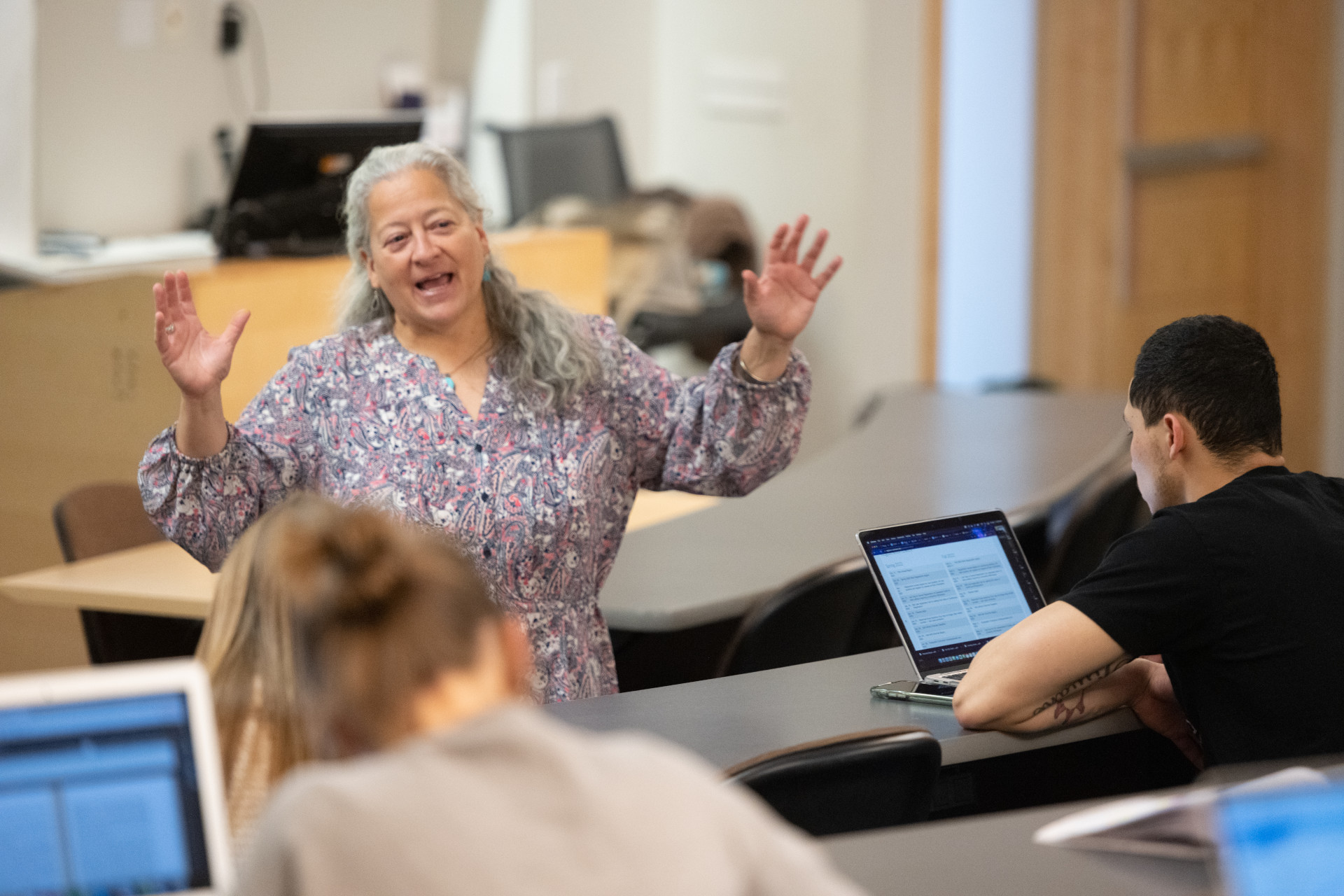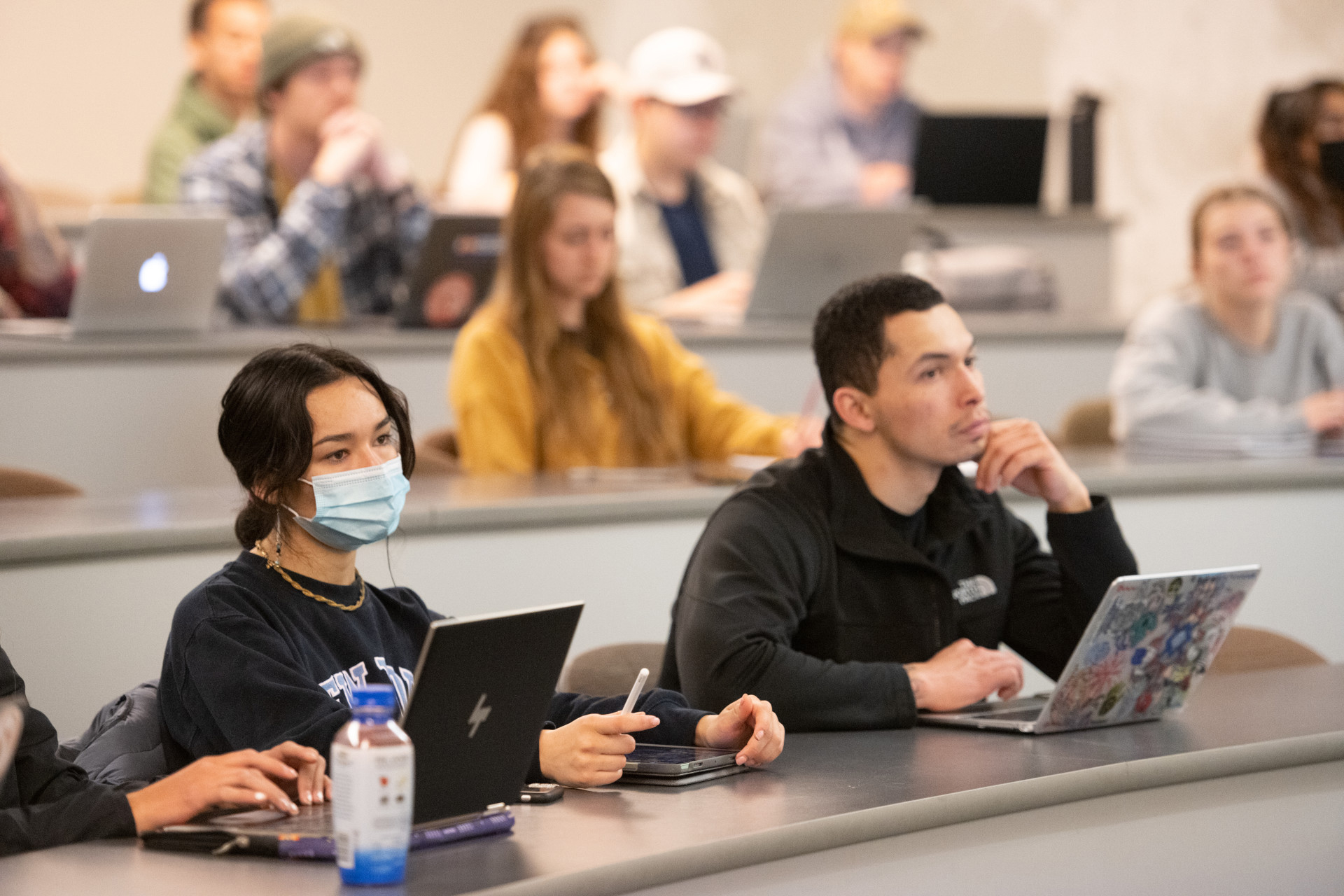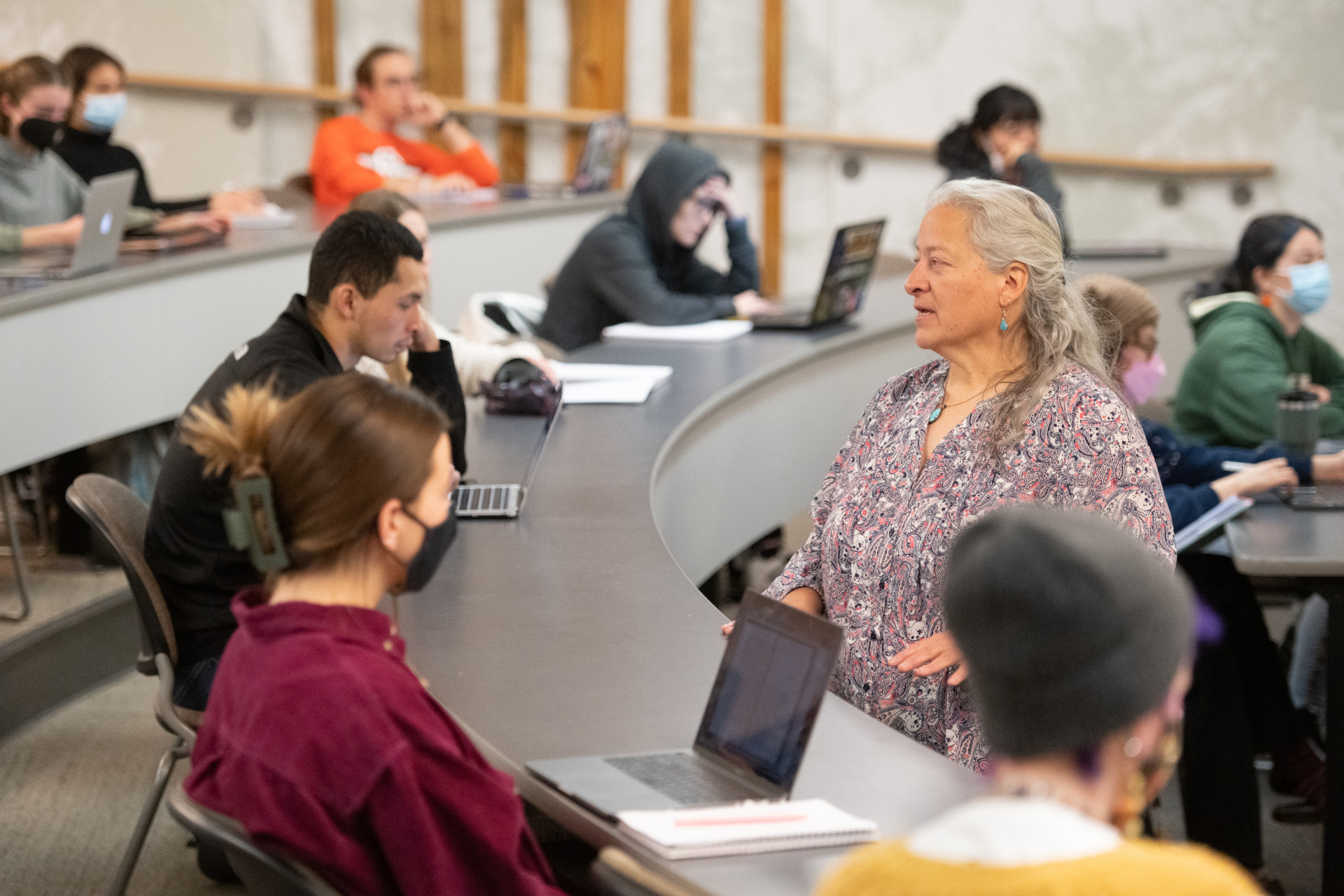
Doreen Martinez, associate professor of Ethnic Studies, teaches Native American History. Photo by John Eisele/CSU Photography
As a student at Colorado State University, Sage Mednansky was facing a deep question: What does it mean to be an Indigenous person? Mednansky — a member of the Sicangu Lakota Nation who grew up on the Rosebud Indian Reservation in South Dakota — found some answers through a growing course of study at CSU.
In 2020, amidst the pandemic, CSU’s Department of Ethnic Studies launched a Minor in Indigenous Studies, designed to provide students with a deep understanding of the theoretical positions and practical applications central to Indigenous ways of knowing and being.
Mednansky, who graduated from CSU in 2021 with a bachelor’s degree in psychology, explained the minor shifted their entire understanding of what the world can be.
“Indigenous knowledge is practical knowledge,” Mednansky said. “The first class really oriented me into what it means to be Indigenous.”
Housed in the College of Liberal Arts, the growing minor program is open to all CSU students. According to the program’s leadership team, the minor is one of only a few in the country to be in a university ethnic studies department. Additionally, it offers classes in environment and cultures; gender; and history, policy and law.
Assistant Professor Lindsey Schneider, Associate Professor Doreen Martinez and Professor Roe Bubar designed the minor. Martinez explained the minor has been eye opening for students, providing a space to explore and understand the complex issues.
The students “have this awakening in that we’re so much more than this response to colonialism,” Martinez said. “They realize that they have political power, and that they have a voice. Many of them see this awakening of what it means to commit and participate.”
Schneider explained many of the students in the program initially take the first course, introduction to Indigenous studies, and get hooked, noting there is a mix of Native and non-Native students in the cohort.
Schneider, who teaches Indigenous Cultural Experience Studies (forthcoming will be Introduction to Indigenous Studies), said the minor covers topics that aren’t covered in other classes across CSU and helps to provide a deeper understanding of the issues mentioned in CSU’s Land Acknowledgement.
“We hear the Land Acknowledgement at events,” Schneider said, “but these classes really get into the weeds of the violence in Colorado and how Native people were removed.”
Schneider added that the classes also look at what Native communities are currently doing today.


The program’s leadership team encourages all CSU students to consider taking the minor. Photos by John Eisele/CSU Photography
According to Martinez, the minor is not just for Native American students. She explained the classes help to develop important critical thinking skills for all students as well as provide an overview of an important part of the past.
“I would encourage a broad spectrum of students to really look at what this minor can offer,” Martinez said. “We have students from a variety of disciplines who value what happens in these classes.”
Mednansky, who is now a research study coordinator at Washington State University’s Institute for Research and Education to Advance Community Health, said the minor changed how they saw the potential in the world.
Mednansky explained the minor is helping with their current research investigating Alzheimer’s disease and dementia in Indigenous Elders.
“The knowledge imparted on me from the Indigenous Studies Minor, I can actually apply in the flesh,” they said. “I can actually see the historic and ongoing effects of settler-colonial genocide — this intergenerational trauma.”
Like Martinez, Mednansky encouraged current and prospective students to consider taking the minor, as there’s something for everyone.
Through the minor, “these Indigenous women impressed upon me that I belong, and I have a space,” Mednansky said. “Everyone who is on Indigenous land in what is called the United States has a stake in this and should know the real history of the places they inhabit.”
Learn more
To find out more about the Minor in Indigenous Studies, email lindsey.schneider@colostate.edu.